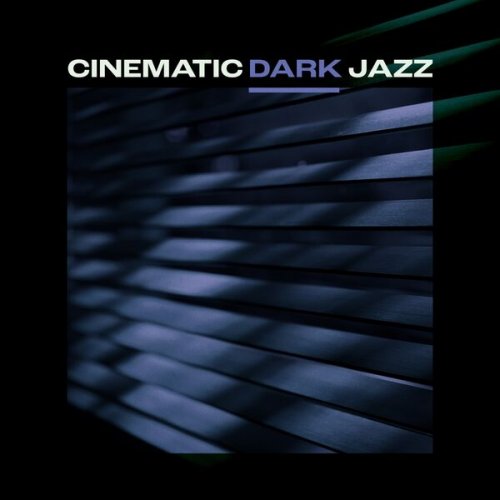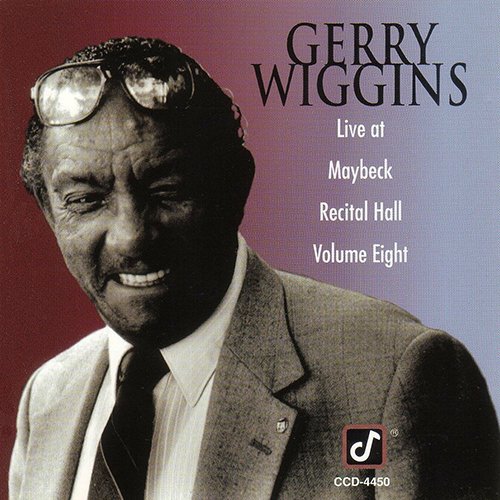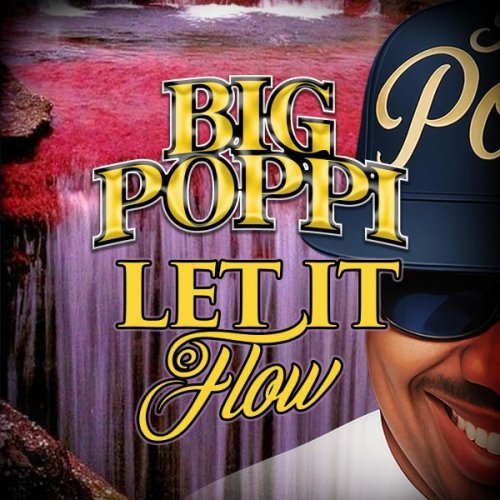London Symphony Orchectra, Bernard Haitink - Bruckner: Symhony No. 4 (2011) [SACD]
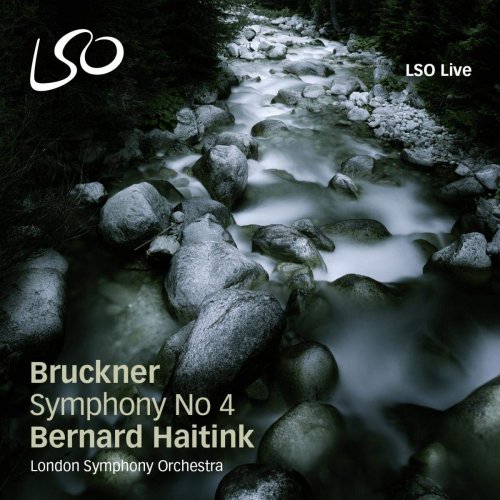
Artist: London Symphony Orchectra, Bernard Haitink
Title: Bruckner: Symhony No. 4
Year Of Release: 2011
Label: LSO Live - LSO0716
Genre: Classical
Quality: DSD64 image (*.iso) / 2.0, 5.1 (2,8 MHz/1 Bit)
Total Time: 69:08
Total Size: 4.17 GB
WebSite: Album Preview
Tracklist:Title: Bruckner: Symhony No. 4
Year Of Release: 2011
Label: LSO Live - LSO0716
Genre: Classical
Quality: DSD64 image (*.iso) / 2.0, 5.1 (2,8 MHz/1 Bit)
Total Time: 69:08
Total Size: 4.17 GB
WebSite: Album Preview
1. Symphony No 4 Romantic: i: Bewegt, nicht zu schnell i: Bewegt, nicht zu schnell
2. Symphony No 4 Romantic: ii: Andante quasi Allegretto ii: Andante quasi Allegretto
3. Symphony No 4 Romantic: iii: Scherzo. Bewegt - Trio: Nicht zu schnell. Keinesfalls schleppend iii: Scherzo. Bewegt - Trio: Nicht zu schnell. Keinesfalls schleppend
4. Symphony No 4 Romantic: iv: Finale: Bewegt, doch nicht zu schnell iv: Finale: Bewegt, doch nicht zu schnell
Maybe because I've been collecting recordings by Maestro Bernard Haitink for nearly fifty years, ever since his appointment as chief conductor of the Concertgebouw Orchestra in the early Sixties, to find the man still conducting, now in his eighties, is fascinating and reassuring. It's nice to know some things don't change. More important, I've always found Haitink's performances models of decorum, propriety, insight, and intelligence. They wear well.
In this 2011 SACD recording with the London Symphony Orchestra, Haitink tackles the Symphony No. 4 in E flat major, "Romantic," by Austrian composer Anton Bruckner (1824-1896). The fact that Haitink has recorded the Fourth Symphony at least twice before--in the 1960's with the Concertgebouw and in the mid 80's with the Vienna Philharmonic--only whetted my appetite for more of the same. The newest performance did not entirely disappoint me, although I have to admit that the conductor's approach has mellowed with age. It's no less thoughtful or intense; it just sounds slower.
Anyway, the Fourth Symphony was Bruckner's first really successful big-scale work, and it didn't come easy. The public greeted his first three symphonies with a lukewarm response, and it took the composer over half a dozen years to write and revise the Fourth. Fortunately, when he did finally premiere it 1881, the public loved it, as listeners have loved it ever since. Bruckner himself nicknamed it "Romantic," and it became Bruckner's only program symphony. His final revision came in 1886, the Nowak edition, which Haitink plays here. The composer tells us what each movement represents, from knights riding out of a medieval castle through the mists of dawn to the sounds of the forest and birds, to a hunt, complete with horn calls, finally culminating in a brilliant summation. The symphony easily communicates a grandeur and nobility of spirit, as Bruckner was, above all, a profoundly spiritual man, his music clearly illustrating his piety.
Haitink opens this Fourth more quietly than usual, even for him, the morning haze finally opening up and letting the horn calls of the knights burst forth. However, Haitink eschews much glamor or theatrics here, preferring a more unhurried approach; yet I'm not really sure I like the "Romantic" Symphony without all of the romance. Don't expect as much robust vigor in Haitink's approach as in the readings of many of his rivals. Nevertheless, Haitink handles the softer, gentler passages with great care, making them seem more otherworldly than ever.
The LSO play with their customary precision and refinement, which goes a long way in music that can often be so ethereal and uplifting as Bruckner's. And when the orchestra get a chance to come into full bloom in the biggest crescendos and fortissimos, they sound wonderful, especially with Haitink guiding them so evenhandedly.
Indeed, Haitink walks a fine line here between offering up simple programmatic themes and darker, more introspective reflections, with the conductor often taking the latter course. In the tradition of Beethoven, Bruckner makes his slow movement almost a funeral march, yet Haitink doesn't exactly see it that way, creating instead a more-elegant flow to the music.
Again, we hear the hunting calls of the horns in the Scherzo, and Haitink seems to enjoy the playfulness as well as the seriousness of their strains. Then, typical of a Bruckner symphony, the finale is monumental, climaxing and surpassing everything that went before it. Needless to say, Haitink lets what little hair down he has left and presents a radiantly exciting conclusion.
In all, this is an agreeable Fourth, even if it's not for me quite on the level emotionally as the recordings of Jochum (DG), Klemperer (EMI), Bohm (Decca), Blomstedt (Denon), Wand (RCA), Walter (Sony), or Haitink's own earlier efforts. However, this newer performance should not disappoint fans of Haitink or the LSO.
Recorded live in June, 2011 at the Barbican, London, the output of the SACD seemed relatively low at first, requiring some adjustment of the volume higher than usual. But, then, there is a very wide dynamic range involved, starting with an especially soft opening passage, and when the loudest notes come through, they do so with authority. And there are blasts that may force one to turn the volume back down. A modest disappointment is that the midrange is not as transparent as it might be, with some upper-bass resonance to contend with. The upper strings can also be a tad steely at times. Still, the sonics make for a thrilling experience, the orchestra sounding big, warm, full, and basically resplendent.
About the only other minor issue I noticed was that the stage depth seemed slightly limited in the two-channel format to which I listened. If you have the SACD playback equipment for multichannel, which I don't, this hybrid SACD would probably provide more depth in the surround mode. Besides, I don't want to overemphasize this trivial lack of dimensionality at times because it's really no different from most other modern recordings. Moreover, the recording's strong dynamic impact and taut bass go a long way toward dispelling any misgivings one may have about small imaging concerns.
Finally, I'm happy to report that despite this being a live recording, the engineers have apparently filtered out most audience noise and thankfully edited out any closing applause.
In this 2011 SACD recording with the London Symphony Orchestra, Haitink tackles the Symphony No. 4 in E flat major, "Romantic," by Austrian composer Anton Bruckner (1824-1896). The fact that Haitink has recorded the Fourth Symphony at least twice before--in the 1960's with the Concertgebouw and in the mid 80's with the Vienna Philharmonic--only whetted my appetite for more of the same. The newest performance did not entirely disappoint me, although I have to admit that the conductor's approach has mellowed with age. It's no less thoughtful or intense; it just sounds slower.
Anyway, the Fourth Symphony was Bruckner's first really successful big-scale work, and it didn't come easy. The public greeted his first three symphonies with a lukewarm response, and it took the composer over half a dozen years to write and revise the Fourth. Fortunately, when he did finally premiere it 1881, the public loved it, as listeners have loved it ever since. Bruckner himself nicknamed it "Romantic," and it became Bruckner's only program symphony. His final revision came in 1886, the Nowak edition, which Haitink plays here. The composer tells us what each movement represents, from knights riding out of a medieval castle through the mists of dawn to the sounds of the forest and birds, to a hunt, complete with horn calls, finally culminating in a brilliant summation. The symphony easily communicates a grandeur and nobility of spirit, as Bruckner was, above all, a profoundly spiritual man, his music clearly illustrating his piety.
Haitink opens this Fourth more quietly than usual, even for him, the morning haze finally opening up and letting the horn calls of the knights burst forth. However, Haitink eschews much glamor or theatrics here, preferring a more unhurried approach; yet I'm not really sure I like the "Romantic" Symphony without all of the romance. Don't expect as much robust vigor in Haitink's approach as in the readings of many of his rivals. Nevertheless, Haitink handles the softer, gentler passages with great care, making them seem more otherworldly than ever.
The LSO play with their customary precision and refinement, which goes a long way in music that can often be so ethereal and uplifting as Bruckner's. And when the orchestra get a chance to come into full bloom in the biggest crescendos and fortissimos, they sound wonderful, especially with Haitink guiding them so evenhandedly.
Indeed, Haitink walks a fine line here between offering up simple programmatic themes and darker, more introspective reflections, with the conductor often taking the latter course. In the tradition of Beethoven, Bruckner makes his slow movement almost a funeral march, yet Haitink doesn't exactly see it that way, creating instead a more-elegant flow to the music.
Again, we hear the hunting calls of the horns in the Scherzo, and Haitink seems to enjoy the playfulness as well as the seriousness of their strains. Then, typical of a Bruckner symphony, the finale is monumental, climaxing and surpassing everything that went before it. Needless to say, Haitink lets what little hair down he has left and presents a radiantly exciting conclusion.
In all, this is an agreeable Fourth, even if it's not for me quite on the level emotionally as the recordings of Jochum (DG), Klemperer (EMI), Bohm (Decca), Blomstedt (Denon), Wand (RCA), Walter (Sony), or Haitink's own earlier efforts. However, this newer performance should not disappoint fans of Haitink or the LSO.
Recorded live in June, 2011 at the Barbican, London, the output of the SACD seemed relatively low at first, requiring some adjustment of the volume higher than usual. But, then, there is a very wide dynamic range involved, starting with an especially soft opening passage, and when the loudest notes come through, they do so with authority. And there are blasts that may force one to turn the volume back down. A modest disappointment is that the midrange is not as transparent as it might be, with some upper-bass resonance to contend with. The upper strings can also be a tad steely at times. Still, the sonics make for a thrilling experience, the orchestra sounding big, warm, full, and basically resplendent.
About the only other minor issue I noticed was that the stage depth seemed slightly limited in the two-channel format to which I listened. If you have the SACD playback equipment for multichannel, which I don't, this hybrid SACD would probably provide more depth in the surround mode. Besides, I don't want to overemphasize this trivial lack of dimensionality at times because it's really no different from most other modern recordings. Moreover, the recording's strong dynamic impact and taut bass go a long way toward dispelling any misgivings one may have about small imaging concerns.
Finally, I'm happy to report that despite this being a live recording, the engineers have apparently filtered out most audience noise and thankfully edited out any closing applause.
![London Symphony Orchectra, Bernard Haitink - Bruckner: Symhony No. 4 (2011) [SACD]](https://www.dibpic.com/uploads/posts/2021-04/1619333467_back.jpg)
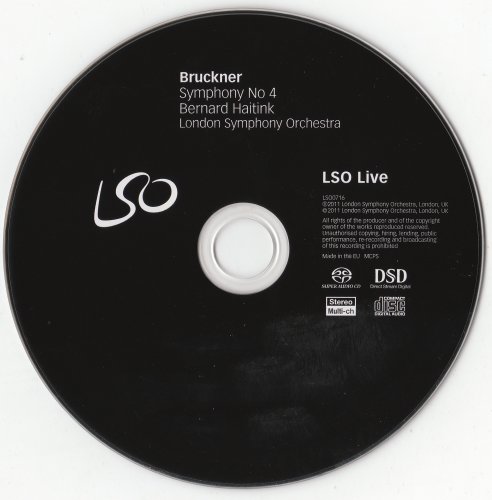
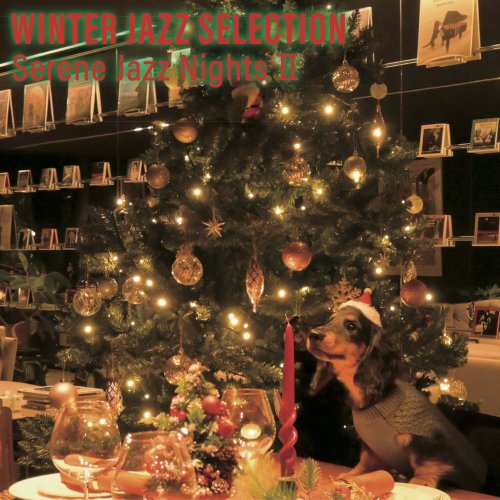
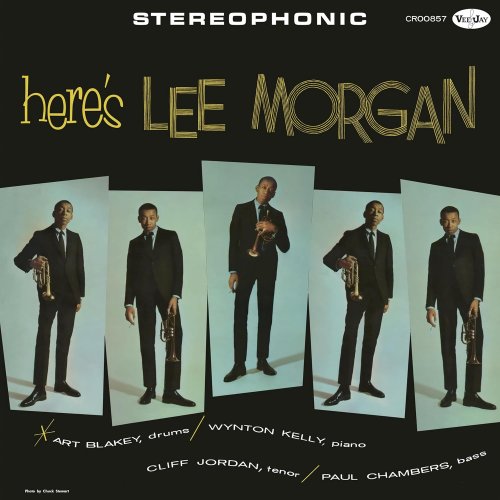
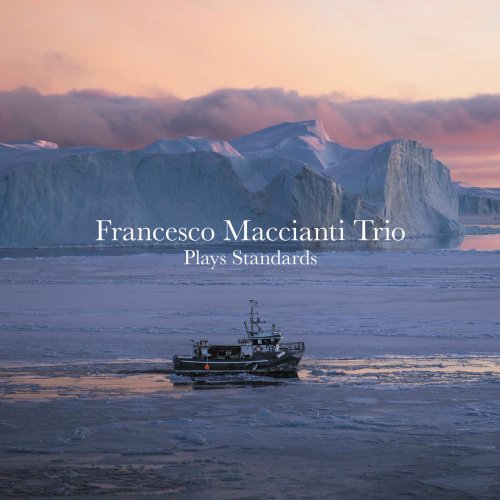
![Afrodream - Guiss Guiss (2025) [Hi-Res] Afrodream - Guiss Guiss (2025) [Hi-Res]](https://www.dibpic.com/uploads/posts/2025-12/1765638325_a2717494732_0.jpg)


